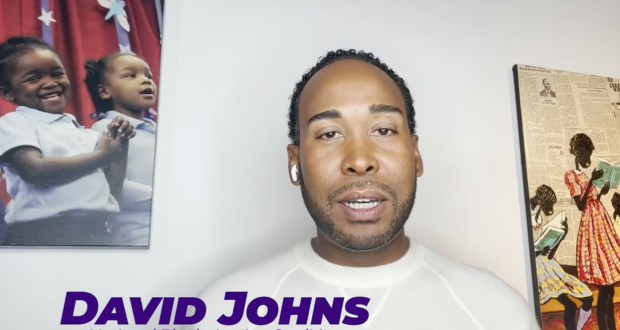By Edward Henderson | California Black Media
Since its inception in 2003, the National Black Justice Coalition (NBJC) has been America’s premier civil rights organization dedicated to the empowerment of Black lesbian, gay, bisexual, transgender, queer+, and same gender loving (LGBTQ+/SGL) people, including people living with HIV/AIDS through coalition building, federal policy change, research, and education. The organization’s mission is to end racism, homophobia, and LGBTQ+/SGL bias and stigma.
Operating out of Los Angeles, the NBJC supports Black individuals, families, and communities to strengthen the bonds and bridge the divides between the movements advocating for racial justice and LGBTQ+/SGL equity.
The leadership at the NBJC envisions a world where all people are fully empowered to participate safely, openly, and honestly in family, faith, and community, regardless of race, class, gender identity, or sexual orientation.
Black LGBTQ+/SGL Americans constitute a significant subset of Black families with 3.7 percent of all Black Americans (more than one million people) identifying as LGBTQ+/SGL, according to the Williams Institute in 2013.
NBJC acknowledges that the challenges facing the community are exacerbated by the stigma and marginalization that attend social constructions of race, normative gender, and sexuality. In an effort to empower Black LGBTQ+/SGL people and their families, NBJC prioritized three policy pillars in 2023: Ensuring that all Black lives matter; co-creating a nation where everyone can thrive; and repairing and healing a divided nation.
California Black Media spoke with Jeffery Wallace, President and CEO of Leaders Up, which is a member of the NBJC.
What does your organization do to improve the lives of Black people in California?
Despite California being a progressive state, when we look at economic outcomes, we still see a major gap between us and our White counterparts. Leaders Up looks at how to build an anti-racist and inclusive economy where there is no racial disparity in the areas of education, employment, compensation and benefits. Beyond that, how do we normalize psychological and physical safety in the labor market, equal opportunities for pathways to leadership and sharing power.
In particular, we know that the queer and trans community are under full frontal assault. What NBJC has allowed us to do is to incorporate an intentionality, a level of consciousness where we can work with our employers and our development partners around identity and inclusion. Ensuring that when we think about Black folks, we’re thinking about Black queer folks and the unique supports and advocacy necessary to ensure they have the support they need to thrive. It has been critical as we think about an intersectional economy that we center queer identities in that work and ensuring the workplace has the capabilities to best serve the population.
What was your greatest success over the course of the last year?
Our greatest success has been defining how we shift from employment and placing folks into careers to transforming the conditions of the economy and the workplace and education system to ensure that those types of opportunities can be generated at scale. Over the last 10 years we’ve been able to place 70,000 people into employment. However, when the pandemic hit, young people of color in particular were the last
ones hired and the first ones fired. Which means that the conditions of the economy had to be transformed in the way where industries saw frontline workers and people color as vital aspects of their strategy. So,
we decided to do something about that.
In your view, what is the biggest challenge Black Californians face?
Systemic racism. I think that when we think about a system that has been designed even in California for African Americans to not win, that’s the biggest challenge that we’re facing. The biggest challenge is also ourselves. For us to organize in a way for us to consolidate our power and shift the conditions we operate in. It’s time for us to not just win the game but change the rules of the game to ensure policies are designed to give Black folks an equitable opportunity to build out here.
What was your organization’s biggest challenge?
It’s capital. Finding out how to amass the capital that frees us up to do the work in a more impactful way. So, we’re no longer concerned about sustainability and more concerned about transformation. That’s the biggest gap between Black service organizations and our White counterparts. Access to resources to be able to have the capacity to
dream and execute with intention and impact.
Does your organization support or plan to get involved in the push for reparations in California?
Absolutely. The more that the movement incorporates organizations like ours, it becomes important for us to dream big around the capital for Black folks to build economic power. Our interest is for Black folks to have the agency to live the lifestyles that aligns with their aspirations and needs. When we think about reparations and the missteps America made post-Civil War and the intentional harms that California has allowed to happen to Black people, the equitable thing to do is to invest in not just reparations but healing and infrastructure.
How can more Californians of all backgrounds get involved in the work you’re doing?
You can visit our website at leadersup.org. We are always looking for professionals who want to give back through career coaching. We have a myriad of opportunities to expose young adults to different career pathways. And we’re looking for business leaders who are looking to connect to the next generation of talent and do it in a way where you are improving your own workplace environment so that you have deeper retention and higher performing teams.
You can also visit nbjc.org to connect with the work we are doing nationwide.
 Westside Story Newspaper – Online The News of The Empire – Sharing the Quest for Excellence
Westside Story Newspaper – Online The News of The Empire – Sharing the Quest for Excellence





